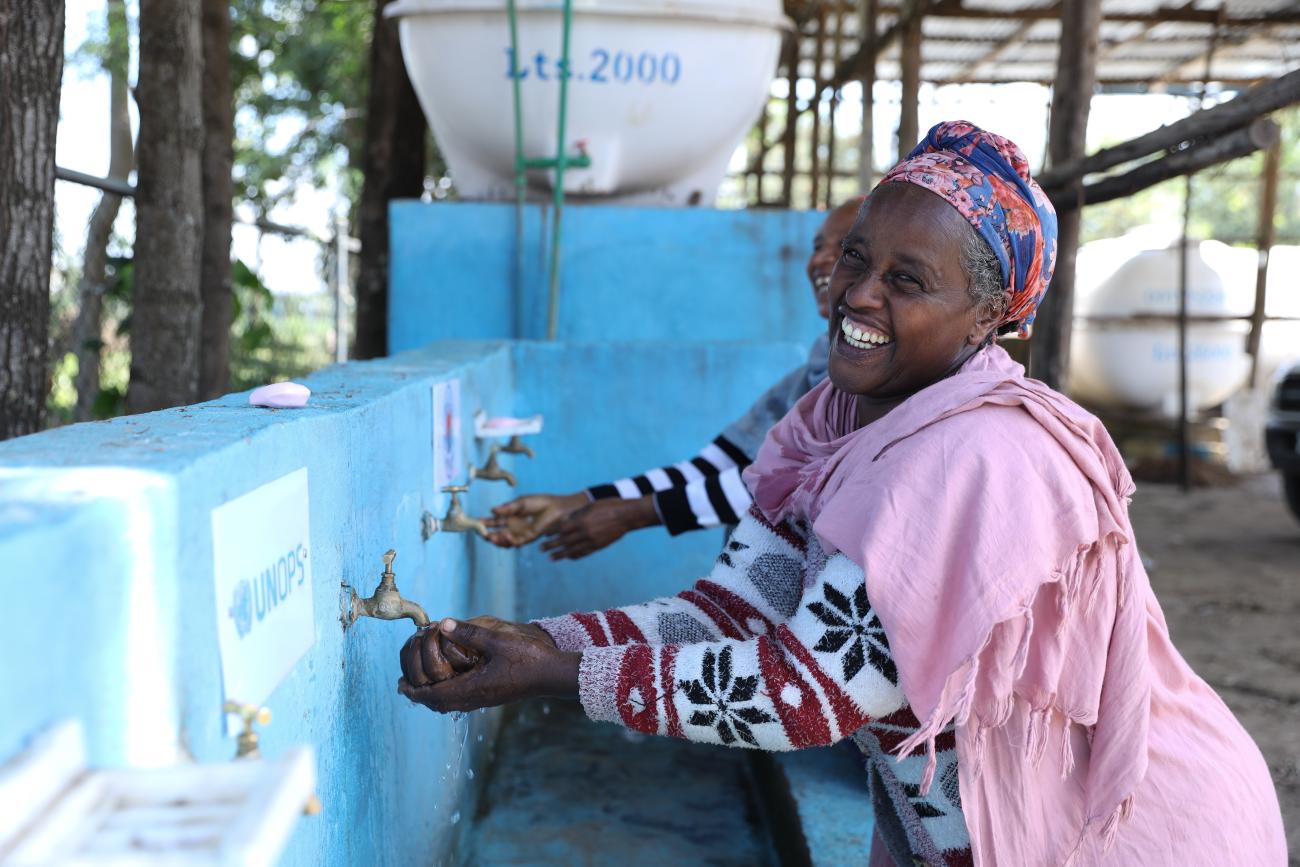Around the world, the COVID-19 pandemic pushed healthcare systems to their breaking point. And in Ethiopia, the pandemic challenged the capacity of health facilities to provide essential healthcare services and treatment, particularly in underserved communities.
UNOPS worked with the Korea International Cooperation Agency (KOICA) to help prevent the spread of COVID-19 and to minimize the heavy toll on healthcare facilities and health workers across the country.
Using $500,000 in funding from KOICA, UNOPS installed groundwater reservoirs, elevated water tanks, handwashing facilities, pumps and other water supply infrastructure to enhance the hygiene and sanitation conditions in 22 health centres in southwestern Ethiopia. As part of the project, UNOPS also procured and distributed personal protective equipment, soap, detergent and sanitizer to 29 health facilities. This helped prevent the spread of infections in healthcare facilities, protecting around 2,000 frontline health workers and 500 vulnerable community members, including people with weakened or underdeveloped immune systems.
"The importance of this handwashing tap has been demonstrated especially in preventing the COVID-19 pandemic. Both society and those of us who work in hospitals benefit from it," Sister Aselefech Wurke, Hospital Matron, Boditi Primary Hospital.
Built in locations that lacked access to water, sanitation and hygiene services, the positive impact of the handwashing facilities will endure long after the COVID-19 pandemic.
"Since this was constructed, everyone who works here as well as patients wash their hands before entering and when leaving the health facility," says Dr. Welde Ewket, General Manager of Boditi Primary Hospital. "This has helped them protect themselves from communicable diseases."
About the project
Using $500,000 in funding from KOICA, UNOPS procured and installed sanitation and water infrastructure at 22 health centres in Ethiopia to prevent the spread of COVID-19 and other communicable diseases among frontline health workers and vulnerable community members



